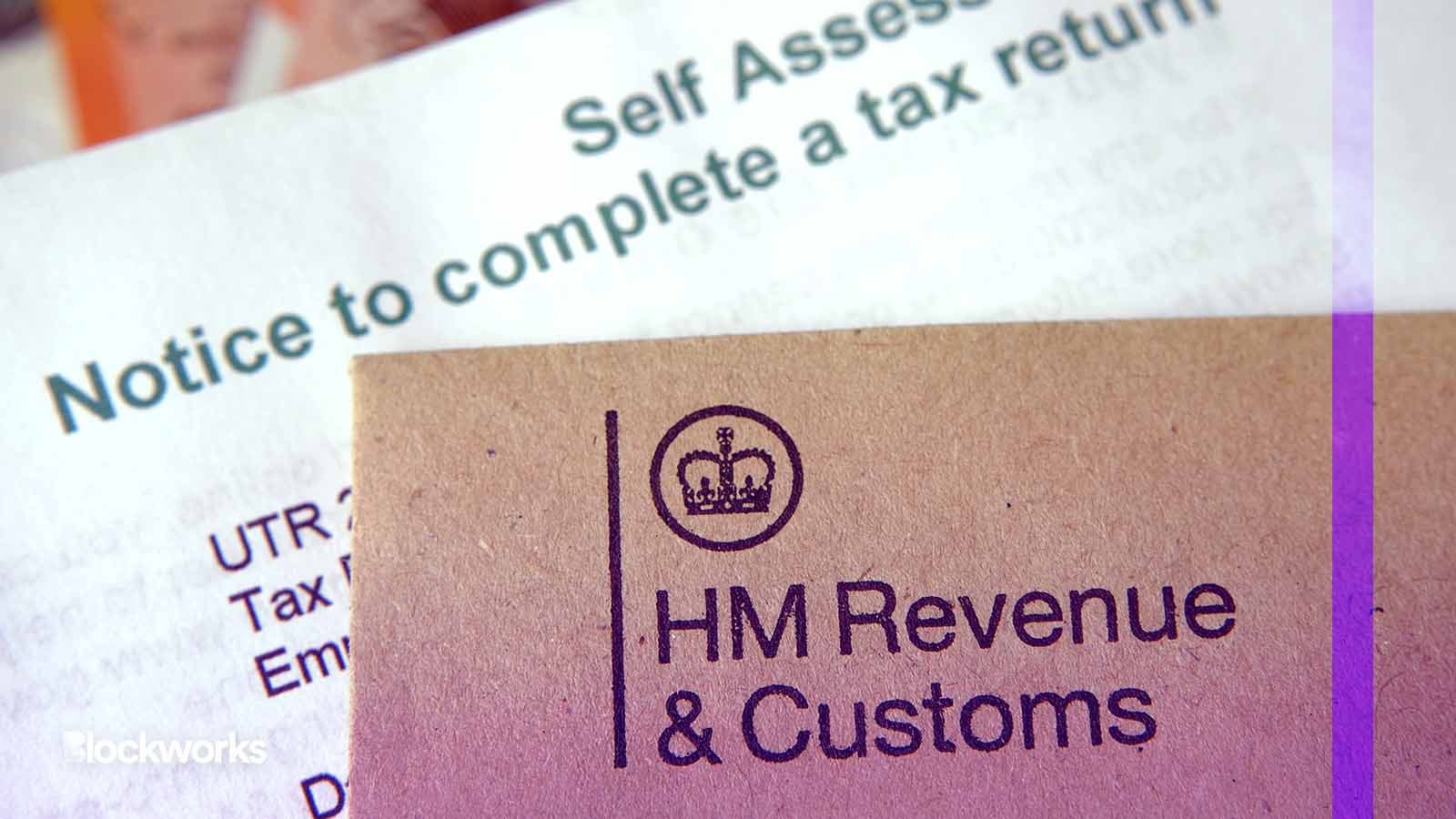UK Government Wants to Change Tax Laws to Better Suit DeFi
Participants would only need to pay for capital gains or income tax when digital assets are sold or exchanged for other crypto or for fiat currency

Ascannio/Shutterstock modified by Blockworks
The UK government has launched a consultation period seeking views on modifying the tax treatment of decentralized finance (DeFi) activity — particularly lending and staking.
In the UK, earnings from DeFi activities such as borrowing and lending are currently considered “miscellaneous income,” subject to income tax. Capital gains tax is also levied when crypto tied to that activity is later sold.
But the government has learned that current tax rules can lead to transactions involved in standard DeFi activity being treated the same as asset sales “in some situations even though the effective economic ownership of the cryptoassets is retained.”
“The need to determine and record the market value of assets at each step in the transaction may also give rise to a disproportionate administrative burden,” HM Revenue & Customs said in its consultation documents.
Under the proposed legislative changes, standard DeFi transactions related to staking, borrowing, lending and liquidity provision would no longer be classified as disposals for tax purposes.
Tax disposal would instead trigger when digital assets are “economically disposed of” in a non-DeFi transaction, as in, when they’re sold on a crypto exchange.
This means participants would only need to pay for capital gains or income tax when digital assets are sold or exchanged for other crypto and/or for fiat currency — never during the staking or lending process.
Terms of the deal
Staking and lending transactions will need to include certain elements to qualify.
A borrower must also have an obligation to return the borrowed tokens, or a lender must have the ability to withdraw the tokens using a smart contract, per the proposed changes.
Any financial return earned by the lender prior to the sale or disposal of those tokens would still be subject to taxation.
The move is part of the UK’s broader push to retain what the government is calling a dominant position in fintech following expectations laid out in a speech by the country’s Economic Secretary to the Treasury last year.
It also follows the government’s prior consultations with various stakeholders in a bid to identify concerns and opportunities for changes. In July of last year, a “Call for Evidence” on the nature of DeFi taxation relating to staking and lending sought to outline key issues participants faced.
Those included confusing and outdated rules that were inconsistent with technological developments in the digital asset economy.
The DeFi consultation runs for eight weeks through to June 22.
Get the news in your inbox. Explore Blockworks newsletters:
- The Breakdown: Decoding crypto and the markets. Daily.
- 0xResearch: Alpha in your inbox. Think like an analyst.






